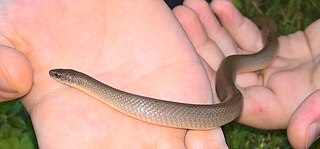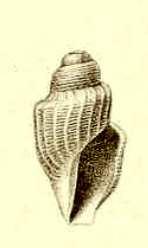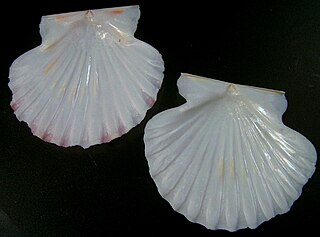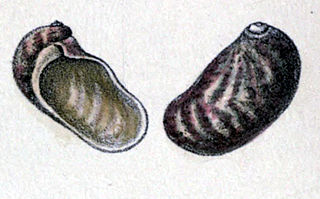
Haldea striatula, commonly called the rough earth snake, is a species of nonvenomous natricine colubrid snake native to the southeastern United States.
The Cukra climbing salamander is a species of salamander in the family Plethodontidae. It is found in Costa Rica, Honduras, and Nicaragua. Its natural habitats are subtropical or tropical moist lowland forests, subtropical or tropical moist montane forests, freshwater marshes, and plantations . It is threatened by habitat loss.
Japonia striatula is a species of land snail first described by Nagamichi Kuroda in 1973 They are opercula, terrestrial gastropods in the family Cyclophoridae. This species is endemic to Japan.
Lyropupa is a genus of air-breathing land snails, terrestrial pulmonate gastropod mollusks in the family Pupillidae.
Lyropupa striatula is a species of air-breathing land snail, terrestrial pulmonate gastropod mollusks in the family Pupillidae. This species is endemic to Hawaii.

Aloe striata, with the common name coral aloe, is a small, stemless South African Aloe species.

Utricularia striatula is a small carnivorous plant that belongs to the genus Utricularia. It is widespread from tropical Africa to New Guinea. U. striatula grows as a lithophyte or epiphyte on wet rocks or tree trunks at altitudes from near sea level to 3,300 m (10,827 ft). It was originally described by James Edward Smith in 1819.

Chamelea is a genus of small saltwater clams, marine bivalve molluscs in the family Veneridae, the venus clams.

Belalora striatula is a species of sea snail, a marine gastropod mollusk in the family Mangeliidae.
Belalora is a genus of sea snails, marine gastropod mollusks in the family Mangeliidae.

Crenavolva striatula is a species of sea snail, a marine gastropod mollusk in the family Ovulidae, the ovulids, cowry allies or false cowries.
Epictia striatula is a species of snake in the family Leptotyphlopidae.

Ebala is a genus of sea snails, marine gastropod mollusks in the subfamily Ebalinae, family Murchisonellidae.

Aloiampelos striatula, formerly Aloe striatula, the hardy aloe or striped-stemmed aloe, is a sturdy succulent plant that naturally occurs on the summits of mountains along the south of the Karoo region of South Africa. Tough and hardy, with bright yellow flowers, it is a popular plant in gardens around the world.

Annachlamys is a genus of scallops, marine bivalve molluscs in the family Pectinidae.

Anthene larydas, the spotted hairtail or common ciliate blue, is a butterfly in the family Lycaenidae. It is found in Senegal, the Gambia, Guinea-Bissau, Guinea, Burkina Faso, Liberia, Sierra Leone, Ivory Coast, Ghana, Nigeria, Cameroon, the Republic of the Congo, the Central African Republic, the Democratic Republic of the Congo, Uganda and western Kenya. The habitat consists of forests and Guinea savanna.
Orthis striatula is an extinct species of brachiopods. The fossils are present in the middle Devonian.

Stomatella striatula is a species of sea snail, a marine gastropod mollusk in the family Trochidae, the top snails.

Parischnogaster striatula is a species of social hover wasps found in Southeast Asia. Their nests are uniquely shaped, mimic their surroundings and, like the other Stenogastrinae social wasps, lack a nest pedicel. They are also unique in their use of glandular secretion when laying eggs. P. striatula is also different than typical wasps because the queens are not the only ones who possess reproductive capabilities; other females also have developed ovaries. This wasp is also known for fiercely protecting its nest against enemies, such as ants or other hornets.

Pseudectatomma is an extinct genus of ants in the formicid subfamily Ectatomminae described by from fossils found in Europe. The genus contains two species dating from the Eocene, Pseudectatomma eocenica and Pseudectatomma striatula.













